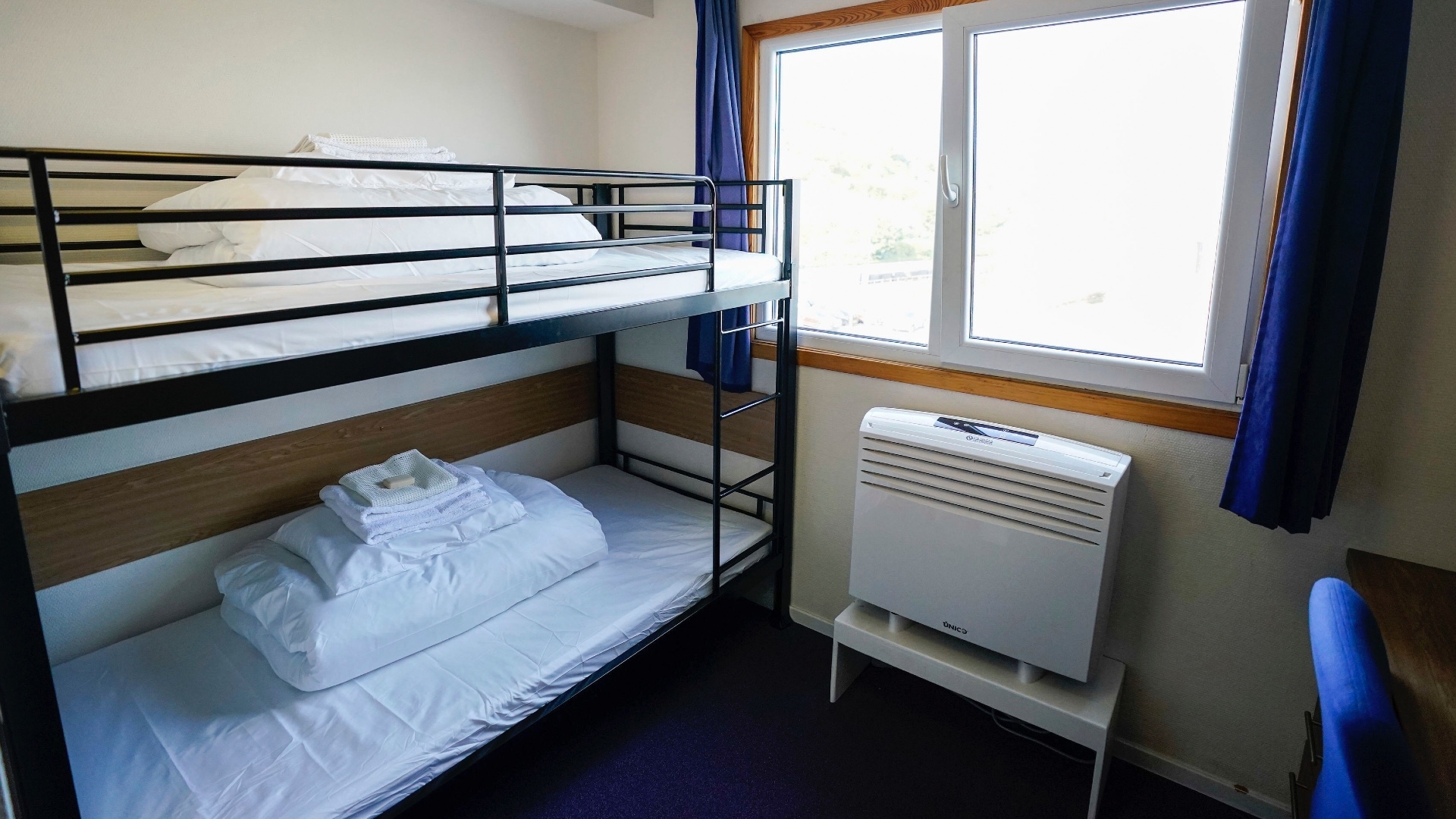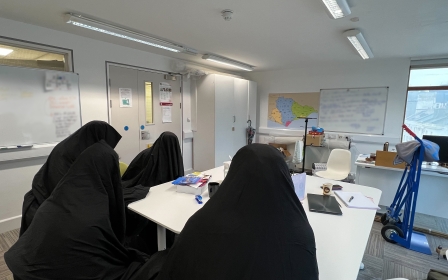Bibby Stockholm: First asylum seekers to board UK's controversial barge despite safety warnings

The first 50 asylum seekers will board the controversial Bibby Stockholm barge “imminently," the British government told the BBC’s Radio 4 Today programme.
The announcement comes just days after the Fire Bridges Union (FBU) raised concerns about overcrowding and fire exit access in a letter to the Home Secretary.
The Bibby Stockholm, a 222-cabin barge moored off Portland port in Dorset, is anticipated to accommodate double its original capacity, with bunkbeds squeezed into single cabins.
Narrow corridors, a lack of life jackets, and locked gates could create a “Hillsborough-type crush” and make it a “potential deathtrap,” the FBU warned.
The evacuation point, a compound on the quayside, has been described by Dorset councillors as “completely inappropriate".
Stay informed with MEE's newsletters
Sign up to get the latest alerts, insights and analysis, starting with Turkey Unpacked
“Firefighting operations on vessels such as the Bibby Stockholm provide significant challenges and require specialist training and safe systems of work. The diminished safety provisions only exacerbate our operational concerns,” Ben Selby, the assistant general Secretary of the FBU wrote.
A leaked internal health document has also warned of the potential for “a significant outbreak” of diphtheria aboard the boat.
It also highlighted the risk of the spread of a number of other infectious diseases including TB, Legionnaires’ disease, norovirus, salmonella, and scabies.
The first group of asylum seekers was initially intended to arrive last Tuesday, but the date was pushed to this week amid health and safety concerns.
The Home Office had already been forced to delay the first arrivals onto the vessel in order to carry out last-minute fire safety checks, after an intervention by health and safety officials.
On Sunday, Shadow Immigration Minister Stephen Kinnock said the opposition Labour Party would have “no choice” but to continue housing asylum seekers on barges if it forms the next government.
The news comes amid a raft of new anti-migration measures including a huge increase in fines for landlords and employers who house or employ undocumented migrants, and the revival of plans to fly asylum seekers to Ascension Island.
Floating prisons
The move to house asylum seekers on the barge in “detention-like conditions” has been condemned by over 50 national organisations and campaigners for being “cruel and inhumane".
“(This) floating prison is very quickly going to turn into an overcrowded camp like Manston,” a member of Action Against Detention and Deportations (ADD) told MEE, referring to the short-term facility in Kent that was dangerously overcrowded.
“There’s also a concern about how this might affect deportation,” they said.
“We know that the Home Office cuts a lot of different admin procedures where they can, any route they can go through to detain people easily, they will do so… having that number of people in unsafe conditions… is a big concern.”
'(This) floating prison is very quickly going to turn into an overcrowded camp like Manston'
- Action Against Detention and Deportations
It is the first time a large floating structure has been used as long-term housing for asylum seekers in the UK. In 2008, Algerian national Rachid Abdelsalam died from heart failure aboard the Bibby Stockholm when it was deployed in the Netherlands.
Reportedly, guards were warned of his deteriorating condition and treated his heart irregularities with cough syrup.
In 2022, also in the Netherlands, a major typhoid outbreak aboard an ageing cruise liner infected 52 asylum seekers and saw 20 staff members hospitalised after raw sewage contaminated the drinking water.
No basic protections
In the same letter, the FBU also expressed concerns about the government’s plans to exempt asylum seeker accommodation from requirements for a Houses in Multiple Occupation (HMO) license.
In May this year, the Guardian reported the government plans to exempt asylum seeker accommodation from basic protections that govern HMOs in order to empty hotels of thousands of asylum seekers and transfer them to the private rented sector.
The proposed changes would lift restrictions on electrical safety and minimum room sizes, and exempt landlords renting to multiple asylum seekers from requiring an HMO license for two years.
“To strip away the very basic protections currently in place is appalling, allowing rogue landlords to house vulnerable men, women, and children in dangerous accommodation," a Refugee Council spokesperson told MEE.
Care4Calais CEO Steve Smith told MEE that the plans treated asylum seekers as “second-class citizens.”
“HMO licences exist for a reason,” Smith said.
“Without them, people's lives would be placed in the hands of unscrupulous landlords who are driven by money rather than providing safe and secure housing for tenants.”
Middle East Eye delivers independent and unrivalled coverage and analysis of the Middle East, North Africa and beyond. To learn more about republishing this content and the associated fees, please fill out this form. More about MEE can be found here.






